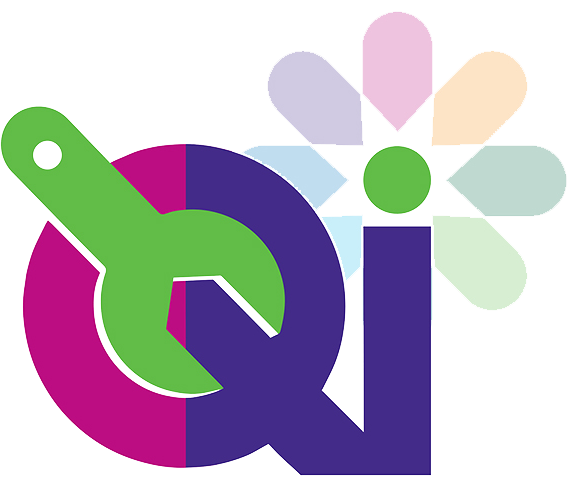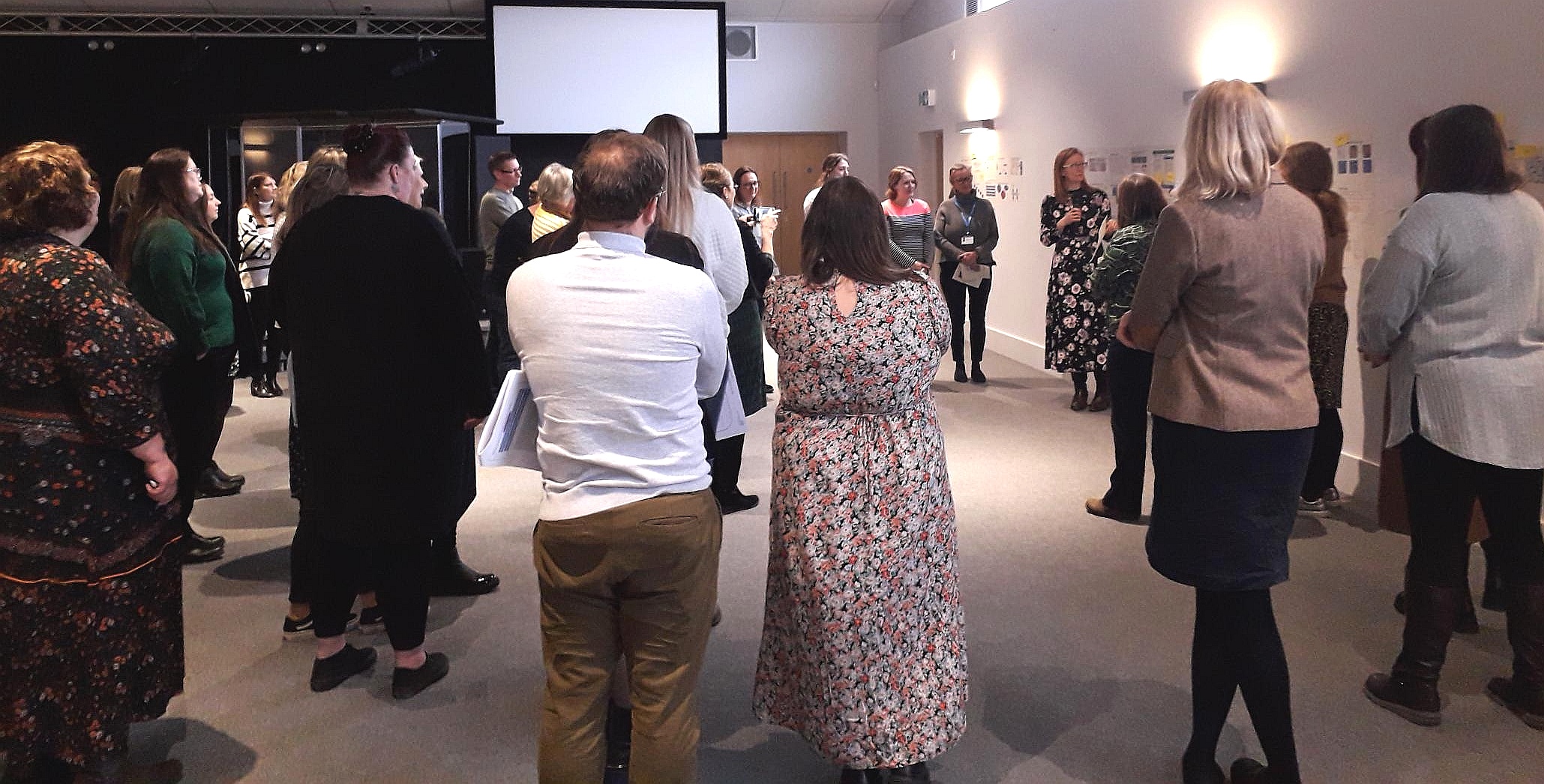On some days, almost every referral into the Canterbury Community Nursing Team at Kent Community Health NHS Foundation Trust (KCHFT), needs a follow up phone call, which has prompted the nurses to take action.
Over 16 days, the team found that 79 referrals needed more information and of these 39 were incorrect referrals, which should have gone to other teams, or did not meet the criteria. Nurses spent 268 minutes dealing with these.
Find out how the team are tackling this, after taking part in our recent quality improvement (QI) collaborative and how another four clinical teams are addressing challenges in their services. (Pictured above, KCHFT colleagues taking part in the January QI collaborative workshop).
Community nursing teams
When the Canterbury Community Nursing Team looked at what was causing them most issues, they found that referral forms were at the centre of the problem.
So, to address this, they are to put together and test a new, shorter form. They also plan to work with GPs, our Local Referral Unit and IT Services over the next three months, to speak with all involved on the importance of every field being completed and to make sure referrals are sent to the correct teams, which is their biggest issue.
Katie Latham, specialist district nurse practitioner, said: “Canterbury gets between 50 and 60 referrals most day. Sometimes, we have to make a phone call on each one. It would reduce our work load and help us with the triaging process if we had all the information we need.
“We have referrals where important information is missing, for people outside of our area and where people are not housebound, when this is who we care for. For example, a GP might have asked for a blood test to be taken, but it’s difficult for us to ask for a patient to consent to this, when we can’t tell them what it’s for.
“In the next two weeks, colleagues from the Local Referral Unit are going to come to work with us, to see what we do and why this is important and we are going to shadow them also, so we can get a better understanding of how they work. We’re also going to visit GP surgeries to speak with staff there and we’re talking with other community nursing teams, who have similar problems, so that we can all improve how things are done. We’ll then work on a new referral form and speak with IT.
“We are triaging patients constantly, day and night. We are so busy and improving the referral form and making sure everyone completes it properly, would really help.
”Previously, other colleagues have tried to help us with the form, but we need to do this work, as we are on the frontline and know exactly what the issues are. The QI approach has really helped us, to see what our biggest issues are and to plan small changes, as well as helping us with collecting and looking at data.” (Colleagues at Kent Community Health NHS Foundation Trust (KCHFT) can read more on Katie’s blog on our intranet, flo).
The Canterbury nurses were just one team who took part in our QI collaborative, which saw three workshops take place, with the last one held in January. The collaborative involved three community nursing teams and two physiotherapy teams.
Clinical Lead Nurse Alice Page, from Total Health Excellence West, said her community nursing team, based in Folkestone, were also looking at improving the referral process and were planning to spend time with the local referral unit and urgent treatment centre, to see how they work.
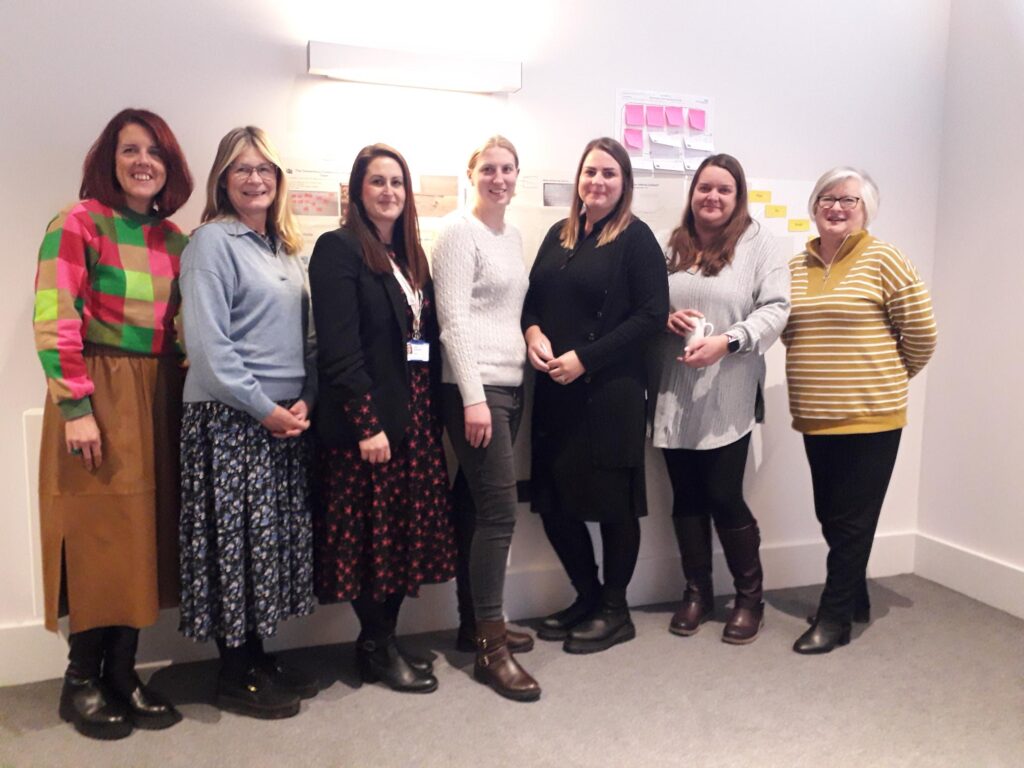
The power of QI
KCHFT’s Chief Executive Mairead McCormick opened the January workshop. She said: “I recently went to a special needs school to see how our medicines optimisation QI project has made a difference there. QI is a powerful thing. It can change lives. It’s a great methodology to use and enables us to get good end results, for people who use our services and our colleagues.
“I listened to colleagues and heard how sometimes it can be something as simple as changing a form which could make a big difference, to patients and staff.”
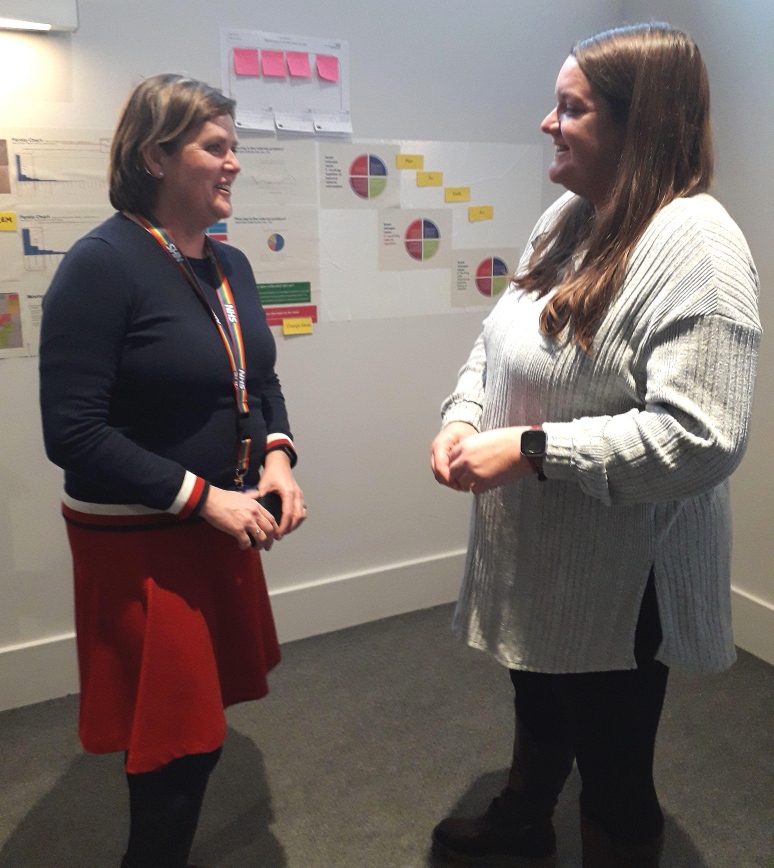
The teams have been working with QI buddies, since August 2022, to look at issues, to see things with fresh eyes, think about possible solutions, make changes, test and record the difference these made and share what they have learned. The theme of the collaborative was demand and capacity, with the teams saying this was an issue for them. They were supported with a QI way of working, to identify issues help make changes.
Seeing more MSK patients
The north Kent musculoskeletal (MSK) team wanted to see if they could see more physiotherapy patients if they worked differently. They are now doing more group education sessions, for arthritis, knee and back pain and lower limb problems.
The team leader Steve Appleby, said: “A physio assistant can help eight people in an hour, rather than one physio seeing just one patient. To help with this, we have upskilled our physio assistants.”
During the collaborative, the team also set an aim to see 70 per cent of follow up patients within the “desired time frame”, which differs which each patient. To help with this, they’ve made a change to how physiotherapist’s diaries are managed to make it easier for clinicians to book follow ups.
Steve said: “It was so helpful doing the three sessions and have our QI buddies look at things differently. We welcomed them into our service to see the brilliant work we do. They gave us skills and confidence so that now I feel I could run an improvement project myself.”
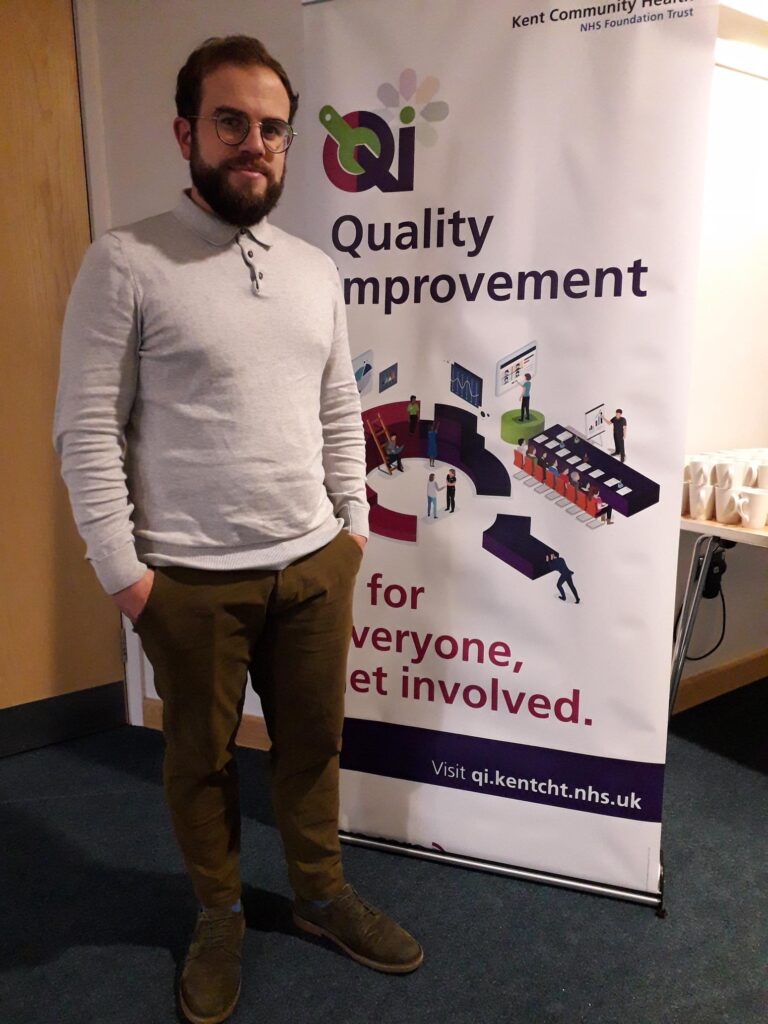
The QI collaborative
Medical Director Sarah Phillips, leads on QI at our trust. She said: “During the collaborative, we looked at what the issues are and what wastes time. We gave autonomy to teams who are out on the frontline to make the changes needed. It’s been a new way of working which we have trialled. In addition to giving people QI training, we wanted to support the use of QI in the real world, see what was happening in teams and give support.”
QI buddies will continue to support teams they have been working with.
Natalie Parkinson, Assistant Director of Business Development and Service Improvement, said: “Colleagues have been learning by doing, gaining new skills and using QI tools to help them improve the things that get in their way.
“Using the continuous improvement approach shaped around the model for improvement framework, has helped them improve what matters to them and supports our aim as a trust to make this part of how we do things at KCHFT.”
The results of the QI collaborative will now be analysed, so the trust can decide on the best way to encourage colleagues to use QI going forward.
Rapid access clinics, huddles and bots
Improvements by other teams involved in the QI collaborative, included setting up a rapid access clinic and trialling a 30-minute huddle once a week, for the team to bond.
The January workshop also included a presentation by Habiba Rawoof and Jo Oldfield-Marsh about the development of our electronic patient record system, Rio and improvements which are being made, as well as a slot about our automation programme and how bots might be able to help teams.
In the past year, the Human Resources Team and IT teams, with the help of around 50 bots, have automated nearly 50 processes, releasing around 9,360 hours. By the end of the year, it is hoped this figure will have increased to 14,389 hours.

